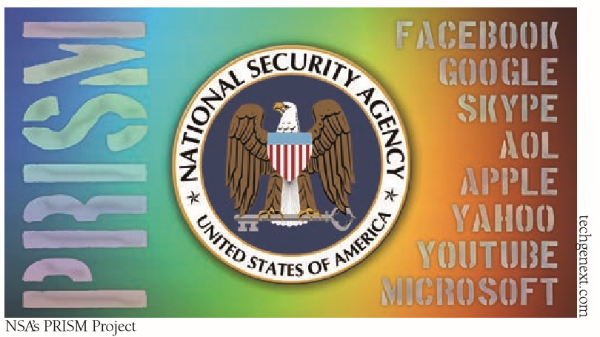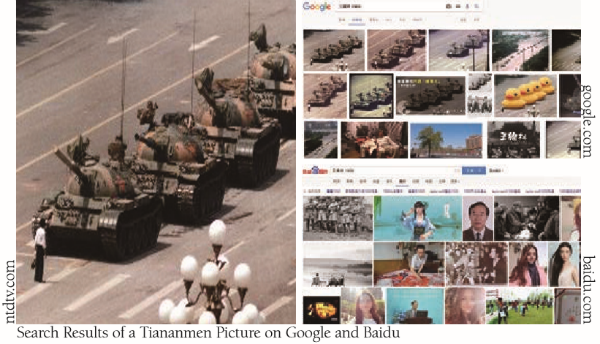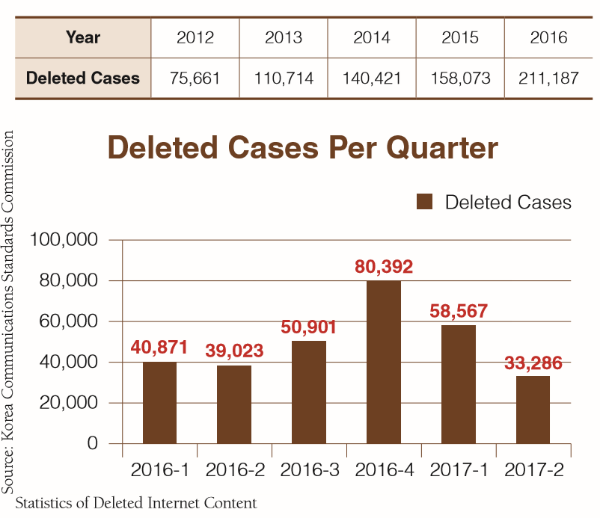Tourists in China frequently complain about the fact that major websites such as Google, Facebook or YouTube cannot be accessed without the help of a Virtual Private Network (VPN). Korea also has an Internet censorship system that blocks unsuitable websites by redirecting the user to the national censorship domain warning.or.kr. Coming across Internet censorship is now an unsurprising part of people’s daily lives in numerous countries around the world. The Sungkyun Times (SKT) now covers the national Internet censorship of various countries along with the problems that citizens face, as well as Korea’s current situation.
The Establishment of Internet Censorship
Introduction of the Internet
The concept of the Internet was first introduced in the 1960s when the United States’ (US) military started research in order to establish a connection between computers in different regions. The objective was sharing information through this network to make sure that important data would not be lost during a nuclear war. Four major universities were linked as a result of this research, making it the primary form of the Internet. The Internet was expanded later on, but it was still limited to authorized groups such as research faculties of universities and leading Information Technology (IT) corporations. There was little conflict between users in this primary environment because they had the common purpose of researching and sharing information with each other.
Changes in the Internet Environment
Due to the increasing demand of the Internet, Tim Burners Lee constructed the World Wide Web (WWW) service in 1991 for anyone to use. By the year 2000, the Internet became a part of people’s everyday lives and the initial common purpose of researching no longer existed among the users. The users lacked a community spirit and they often hurt one another with intentional distribution of denunciation based on false information. For example, there was a Neo-Nazi movement that organized to meet in Charlottesville, Virginia in August, 2017. This movement gathered participants and they planned their activities through an Internet website. Their gathering, however, ultimately resulted in the death of an opposing civil rights activist. Like so, the Internet is no longer able to function as a healthy source of information, and countries have started to censor the Internet’s ill-fitting contents.
Immoderate National Censorship on the Internet
Indiscrete Internet Censorship in the US
Although Internet censorship became necessary to a certain degree, many countries went overboard and abused this authority. The US, a country regarded to be a symbol of freedom and justice, took part in this immoderate censorship of information.

The National Security Agency (NSA) of the US carried out a global surveillance program known as the Planning tool for Resource Integration, Synchronization and Management (PRISM) project. The PRISM project’s objective was to prevent terrorism by conducting international scale cyber surveillance. Anyone who searched for or spoke particular keywords such as “bomb”, “terror” or “revolution” had every phone call screened, Internet usage recorded, and their personal information collected by the NSA.
The NSA denied all accusations regarding the existence of the PRISM project, until NSA agent Edward Snowden stood witness for all the claims and disclosed the data he copied from the project in 2013. Snowden mentioned that the PRISM project had access to information from credit card numbers of individuals to text messages of their family members and 36 countries were under surveillance. A major telecommunication company, AT&T, also revealed that the NSA demanded the private information of its customers. The NSA director finally admitted the existence of PRISM, but claimed that the project prevented over 50 terror incidents during its practice. This claim, however, was proven false in court as the NSA could not give any clear evidence of any case where PRISM was functioning for its original purpose. The PRISM project brought about massive controversy regarding online censorship and suppression of information. As a result, the US became categorized as an enemy of the Internet in 2014 along with China, Russia, and North Korea by the Reporters without Borders, which is a non-governmental organization defending the freedom of information. Despite all the past criticisms, recent reports that the US Department of Justice demanded over a million IP addresses of people accessing Trump-opposition websites imply the continuation of Internet surveillance in the US.
China’s Political Censorship of Information
The WWW Foundation’s international data analysis of 84 countries indicated that China implements the harshest degree of Internet censorship. Many global websites such as Google, Facebook, Youtube, and Twitter cannot be accessed in China because the “Great Firewall of China” blocks all attempts of doing so. The Great Firewall of China is a program that is mandatorily installed in order to censor the information that residents can encounter. Residents in China therefore often used VPN, a system that converts the user’s access information to a different country and bypasses the firewall. VPNs were the only method of accessing major foreign websites, but China has recently decided to make all VPNs illegal. Apple has deleted over 60 VPN programs on its Chinese App Store this month, and more are expected to follow.
The initial objective of protecting users from unsuitable contents is being misused in China and Internet censorship has now become a political tool. The Tiananmen Protest of 1989 was a democratization movement with 200,000 citizens struggling for eradication of corruption in China. The Chinese government extinguished these efforts back then by sending tanks and soldiers to carry out martial law. The historical events that took place in Tiananmen, however, cannot be found on any Chinese search engine.

The Tiananmen picture on the left can be found on global search engines (above), but Chinese search engines (below) show no results related whatsoever with the same Chinese keyword. Information on Tibet is being censored on Chinese search engines as well. The keyword “Tibet” itself shows many results, whereas another keyword “Tibet rights” only results in irrelevant information.
This political Internet censorship that is happening in China not only fails to reflect the freedom of spirit of the modern age, but is also dangerous in a sense that history is being forgotten by its citizens. Moreover, the VPNs which acted as ways to detour around the Great Firewall are now being made illegal and people are losing methods of access to politically uncensored information. One of the Internet’s most beneficial qualities is the borderless exchange of information, but China is isolating itself from the world. Furthermore, other countries such as Russia are being influenced by China and are announcing that they will follow in China’s footsteps of making VPNs illegal.
Korea’s Internet Censorship
Considerable Suppression in Korea
Korean citizens might not have thought deeply about Internet censorship or only considered it as a problem of other countries, but Korea is currently assessed as a country with noticeable Internet suppression. The WWW Foundation mentioned above has evaluated the harshness of Korea’s Internet censorship as 23rd out of the 84 countries analyzed, and Reporters without Borders categorized Korea as a “Countries under Surveillance” since 2008. Since the categorization of country under surveillance means that Korea is right below enemies of the Internet such as China and Russia, it is necessary to understand the Internet censorship that is taking place in Korea.

According to statistics distributed by the Korea Communications Standards Commission (KOCSC), the council in charge of Internet censorship in Korea, Internet censorship is increasing at a recognizable speed every year. In addition, it is easy to see that the number of censored pages reached its highest in the fourth quarter of 2016, when numerous political incidents occurred in Korea.
The KOCSC deletes pages such as drug exchange websites or pornography, but many websites are also deleted under the category of “others.” Detailed information about the types of censoring in the “others” category showed that “national security” and “criticism” took up the majority. 70 websites were found inaccessible in Korea just because they were related to North Korea, and frequent suspension of SNS users criticizing Park Geun-Hye was witnessed. Such unclear reasons for deletion have dropped Korea’s freedom of Internet usage and foreign rating agencies have marked Korea so.
Efforts to Protect Internet Freedom in Korea
The new Korean government that has come to power since May has realized this problem of Internet censorship and is trying to control the situation. President Moon Jae-In announced that efforts to initialize an Online Restoration Policy are being carried out. The Online Restoration Policy focuses on the self-restoration of Internet postings or websites which might have been deleted for unclear reasons. The 1.4 million postings and comments deleted by major Korean search engines over the past five years were the main cause of this proposal. The realization of this policy, however, does not look easy because it is facing much opposition from other political parties. The initial announcement was that the restoration policy will be passed by 2018, but a delay to 2022 was announced on August 22nd.
Korea’s current state of Internet censorship is not as severe as its neighboring countries, but it is in an insecure situation and Korean citizens should be aware of the discussions taking place.
The Dark Web
Extreme Form of Censorship
Avoidance With the increase of national Internet censorship showing no signs of ending, an extreme form of bypassing censorship named the “Dark Web” came to be. The Dark Web is a platform that hides the area of access of every single user. In other words, the Dark Web has no form of censoring from any country whatsoever. United Kingdom’s representative newspaper, The Guardian, uses the Dark Web to receive reports from journalists and citizens of countries who may be in danger from harsh censorship and political retaliation. Through the Dark Web, anonymity is thoroughly guaranteed to its users and information can be exchanged without worry. The developers of the Dark Web mentioned that its usage increases every time a coup-de-tat or a dictatorship takes place around the world such as Tunisia, Egypt, and the United Arab Emirates (UAE).
While the Dark Web is an appealing choice for reporters or civil rights activists to avoid censorship, it attracts extremely illegal users as well. Violent and sexual contents along with drug circulation websites are exposed to users without any restriction. A drug sales website named the Silk Road completed 15 million sales worth over $200 billion through the Dark Web before the Federal Bureau of Investigation (FBI) captured the prime movers. The Dark Web is a last resort to citizens under intense suppression, but it is a double-edged sword and the development of a better bypassing platform would be ideal.
The Korean film A Taxi Driver gathered an audience of more than 10 million by portraying a foreign journalist and his efforts to deliver the truth about the historical events that took place in Korea. Although the Internet seems to prevent such drastic incidents from happening nowadays, Korea’s Internet censorship is actually in an unstable situation. If every keyword related to Choi Sun-Sil was censored from Korea’s search engines last winter, the candlelight rally of over one million people might never have taken place. It is perhaps necessary to show an interest and try to understand the current Internet environment in more depth.
